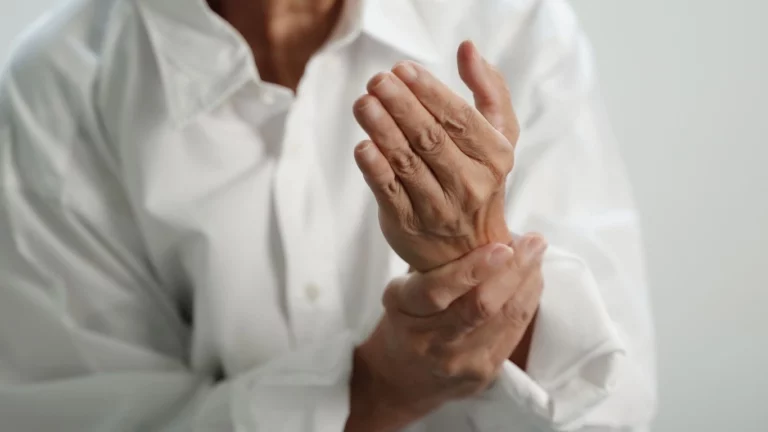Discover the Best Sleeping Positions for GERD Relief
Did you know that the way you sleep could be the secret weapon against those frustrating GERD flare-ups? I remember countless nights tossing and turning, wondering if I’d ever sleep soundly without waking up to that burning sensation in my chest. It wasn’t until I dug deep—talking to my doctor, reading studies, and experimenting with different positions—that I discovered the life-changing impact of your sleeping posture on acid reflux. Let’s dive in together and explore what really works, so you can finally get the restful nights you deserve.
Why Sleeping Position Matters More Than You Think
When you lie down flat, gravity’s no longer keeping stomach acid where it belongs. This can let acid slip up into your esophagus, causing the uncomfortable symptoms we know as GERD. But by tweaking your sleeping position, you can use gravity to your advantage, keeping acid in your stomach and out of your throat. Sounds simple, but it took me years of midnight agony to truly appreciate how powerful this is!

The Left-Side Sleeping Advantage: Science-Backed Comfort
Turns out, sleeping on your left side isn’t just old wives’ advice—it’s backed by research! According to the Mayo Clinic, left-side sleeping helps keep the junction between your stomach and esophagus above the level of gastric acid, reducing reflux episodes overnight.
Why the Left Side Helps
- Stomach position: Your stomach is on your left, so this position keeps acid pooled away from the esophagus.
- Esophageal sphincter: Less pressure on the lower esophageal sphincter (LES) means fewer reflux episodes.
- Gravity assist: Acid naturally stays lower in the stomach, reducing nighttime heartburn.
Personally, switching to my left side was a game-changer—my night sweats and coughing fits nearly vanished in a week. That’s why many GERD specialists recommend it as a first step for better sleep.
Sleeping on Your Back: The Pros and Cons You Need to Know
You might think lying flat on your back would help, but it’s not always the case for GERD sufferers. However, elevating your head can make back sleeping a powerful tool against acid reflux. Studies show that raising your head 6-8 inches reduces acid exposure in your esophagus. One helpful resource I found on this topic is our guide on choosing a GERD-friendly pillow.

How to Elevate Correctly
- Use a wedge pillow instead of stacking standard pillows—this maintains a consistent incline.
- Consider raising the head of your bed frame with blocks for a stable solution.
- Avoid soft surfaces that let your body sink, which can bend your torso awkwardly and negate the benefits.
My own experiment with a wedge pillow was surprisingly effective—within a few nights, I noticed far fewer regurgitation episodes and better overall sleep quality.
Why Right-Side Sleeping Might Be Worsening Your GERD
Right-side sleeping might feel natural, but it can be one of the worst choices for GERD. Research indicates this position relaxes the LES more than the left side, allowing acid to travel up your esophagus more easily. For a deeper dive on how GERD and sleep positions intersect, check out our GERD and sleep quality guide.

Key Risks of Right-Side Sleeping
- Increased esophageal acid exposure.
- Prolonged episodes of nighttime heartburn.
- Higher chance of waking up choking or coughing due to reflux.
If you find yourself naturally rolling to the right during the night, try placing a pillow behind your back to keep yourself comfortably on your left side. It felt awkward for me at first, but after a week or so, it became second nature.
Understanding the Role of Your Bed Setup
Beyond your body’s position, your mattress and pillow choices matter more than most people think. Memory foam can keep your spine aligned, while firmer surfaces prevent your torso from sinking and folding, which can push acid up. For comprehensive strategies to relieve nighttime reflux, don’t miss our GERD diagnosis and treatment insights.

Small Tweaks, Big Impact
- Switch to a medium-firm mattress that supports your hips and shoulders evenly.
- Choose a breathable, hypoallergenic pillow to reduce allergens that can irritate your throat.
- Keep your bedroom slightly cool—overheating can worsen nighttime reflux symptoms.
It’s amazing how a few simple changes can make your bed a safe haven instead of a reflux trap. I’ve helped several friends adopt these tips, and the improvement in their sleep quality has been nothing short of remarkable.
Common Mistakes That Sabotage GERD Relief at Night
Even when you get your sleeping position right, certain habits can ruin your progress. I learned this the hard way when I thought my new wedge pillow would solve everything—yet my late-night snacks kept waking me up gasping for air. Small details like these can make or break your GERD management plan.

Habits to Avoid Before Bed
- Eating late meals: Going to bed within 2-3 hours of a heavy meal is a recipe for reflux disaster. Let your stomach clear before you lie down.
- Alcohol or caffeine at night: Both relax your lower esophageal sphincter, making it easier for acid to escape.
- Smoking: Nicotine weakens the LES, and smoking itself increases acid production—bad news for your nighttime comfort.
According to The Sleep Foundation, simply shifting your dinner earlier and avoiding these triggers can significantly reduce nighttime GERD episodes.
What About Stomach Sleeping? The Uncomfortable Truth
Sleeping on your stomach might seem cozy, but for GERD sufferers, it can compress your abdomen and force acid upward. I tried it years ago thinking it might help, but I woke up coughing almost every hour—definitely not recommended.

Why Stomach Sleeping Backfires
- Increases abdominal pressure: This pushes stomach contents against the LES, making reflux more likely.
- Neck and back strain: Twisting your head to the side for hours can cause pain and disrupt sleep.
- Disrupts breathing: Compression of your diaphragm can worsen nighttime breathing issues, especially if you also suffer from sleep apnea.
Instead of stomach sleeping, redirect your efforts toward safer positions. Our comprehensive article on GERD and sleep apnea explains why breathing and reflux are so closely linked.
Pro Tips for Training Yourself Into Better Sleep Positions
If you’re like me, you know old habits die hard—especially when you’re asleep and don’t even realize you’re rolling to the wrong side. But you can train yourself with some simple tricks.

How to Stay on Your Left Side All Night
- Use a body pillow: Hugging a long pillow keeps you comfortably aligned on your left side.
- Place a pillow behind your back: This makes it awkward to roll over, encouraging you to stay put.
- Adjust your sleep environment: A firmer mattress can reduce tossing and turning that leads to shifting positions.
These little tweaks worked wonders for me—and I’m not exaggerating when I say they helped me wake up refreshed for the first time in years.
Understanding How GERD Affects Sleep Quality Beyond Heartburn
GERD doesn’t just cause heartburn; it can trigger coughing, choking, sore throats, and even disrupt your deep sleep cycles. Studies published in the National Library of Medicine show a strong link between nighttime reflux and reduced REM sleep, which can leave you feeling exhausted no matter how many hours you clock in.

How Nighttime GERD Harms Sleep
- Interrupts REM: Frequent arousals during reflux episodes reduce the time spent in restorative sleep.
- Triggers micro-awakenings: Short wake-ups you don’t remember can still leave you feeling groggy.
- Causes nighttime asthma or coughing: Acid reaching your airways can cause bronchospasm, making you wake up gasping.
Understanding these connections gave me a whole new respect for why I felt so drained despite getting eight hours in bed. It’s why adopting GERD-friendly sleeping positions isn’t just about comfort—it’s about truly restoring your health.
For a deeper understanding of GERD symptoms that can disrupt your nights, see our essential guide on GERD warning signs you should never ignore.
Foods and Drinks Before Bed: How They Influence Nighttime GERD
Ever notice how a late-night snack or evening cocktail can kickstart a reflux episode that ruins your sleep? I sure have—my old habit of munching cheese crackers or grabbing chocolate before bed turned my nights into a reflux nightmare. It’s not just what you eat, but when you eat it that matters for GERD management.

Worst Offenders Before Sleep
- Chocolate: Relaxes your LES, increasing reflux risk.
- Fatty foods: Delay stomach emptying, allowing acid more time to back up.
- Spicy meals: Irritate the esophagus and intensify heartburn sensations.
- Alcohol and coffee: Known LES relaxers, both can amplify nighttime reflux.
According to Cleveland Clinic experts, avoiding these items for at least 3 hours before bedtime is a proven way to reduce nocturnal GERD symptoms.
Small Lifestyle Changes That Protect You During Sleep
While adjusting your sleeping position is key, pairing it with smart habits can make your improvements last. When I finally started combining my left-side sleeping with lifestyle tweaks, it felt like I discovered a whole new level of GERD relief—no more waking up at 2 a.m. coughing!

Key Habits for Nighttime Reflux Prevention
- Maintain a healthy weight: Extra pounds around your abdomen increase pressure on your stomach, worsening GERD.
- Sleep hygiene: Stick to a consistent sleep schedule and relaxing bedtime routine to help your body wind down without reflux triggers.
- Stay hydrated—but smartly: Sipping small amounts of water helps dilute stomach acid, but avoid large amounts right before bed.
For even more tips, explore our practical guide on long-term GERD management strategies that can transform your sleep and your days.
When Sleeping Position Isn’t Enough: Seeking Professional Help
While these techniques have helped me and many others, there are times when nighttime GERD doesn’t respond to lifestyle tweaks alone. I learned that if you regularly wake up choking, experience unintentional weight loss, or notice blood in your vomit or stool, it’s time to see your doctor immediately.

Signs You Need Medical Support
- Severe chest pain that mimics a heart attack.
- Difficulty swallowing or feeling like food is stuck in your throat.
- Chronic cough or hoarseness unresponsive to changes in sleeping position.
As explained in the authoritative guide from NIDDK, untreated GERD can lead to complications like esophageal strictures or Barrett’s esophagus, making early intervention critical.
Creating a GERD-Friendly Bedroom Environment
Your bedroom setup can make or break your GERD management efforts. I used to think just sleeping on my left side was enough—until I realized my bedroom environment was sabotaging my sleep with allergens and improper support.

Essentials for a GERD-Proof Bedroom
- Keep it clean: Dust mites and pet dander can irritate your airways, compounding GERD symptoms.
- Choose breathable bedding: Moisture-wicking fabrics help regulate temperature and prevent overheating that can trigger reflux.
- Elevate head of bed safely: Consider adjustable bed frames for precision control without stacking pillows unsafely.
If you’re curious about how your bed setup might be affecting your GERD, check out our practical guide to GERD-friendly bedding tips for a complete bedroom makeover that supports your digestive health.
For more comprehensive advice on effective treatments, see our ultimate GERD treatments guide—a perfect starting point if your nighttime symptoms persist despite your best efforts.

Camellia Wulansari is a dedicated Medical Assistant at a local clinic and a passionate health writer at Healthusias.com. With years of hands-on experience in patient care and a deep interest in preventive medicine, she bridges the gap between clinical knowledge and accessible health information. Camellia specializes in writing about digestive health, chronic conditions like GERD and hypertension, respiratory issues, and autoimmune diseases, aiming to empower readers with practical, easy-to-understand insights. When she’s not assisting patients or writing, you’ll find her enjoying quiet mornings with coffee and a medical journal in hand—or jamming to her favorite metal band, Lamb of God.







